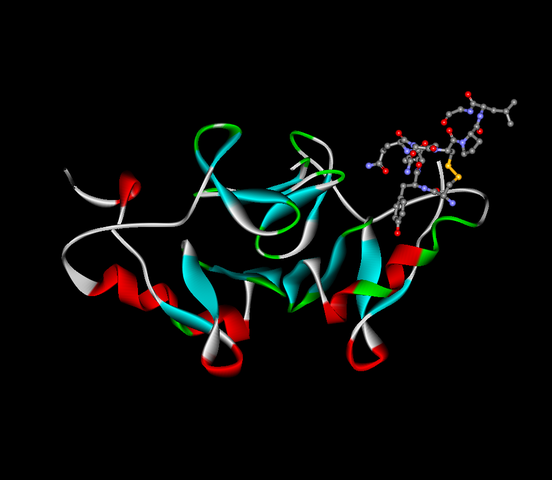Oxytocin – a polypeptide hormone produced mainly by the hypothalamus and stored in the pituitary gland – gives greater sense of spirituality than a placebo, according to new research published in the journal Social Cognitive and Affective Neuroscience.
Article by News Staff

Oxytocin supports spirituality. Image credit: Duke University.
Oxytocin, sometimes called the love hormone or the cuddle hormone, is a chemical associated with pair bonding, including mother-infant and male-female bonds, increased paternal involvement with children, and monogamy in certain rodents.
In humans, oxytocin is released through touch, warmth, and affectionate connection. Recent research has highlighted oxytocin’s possible role in promoting pro-social behaviors such as trust, empathy, and openness to social risk.
To test how oxytocin might influence spirituality, a team of researchers led by Dr. Van Cappellen of Duke University and the University of North Carolinaadministered the hormone to one group and a placebo to another.
“Midlife male participants (N - 83) were randomly assigned to receive intranasal oxytocin or placebo,” the scientists said.
“In exploratory analyses, participants were also genotyped for polymorphisms in two genes critical for oxytocin signaling, the oxytocin receptor gene andCD38 (a gene that regulates the release of oxytocin from hypothalamic neurons in the brain).”
Those participants who received oxytocin were more likely to say afterwards that spirituality was important in their lives and that life has meaning and purpose.
This was true after taking into account whether the participant reported belonging to an organized religion or not.
Participants who received oxytocin were also more inclined to view themselves as interconnected with other people and living things.
“Study participants were all male, and the findings apply only to men,” Dr. Van Cappellen noted.
Study subjects also participated in a guided meditation. Those who received oxytocin reported experiencing more positive emotions during meditation, including awe, gratitude, hope, inspiration, interest, love and serenity.
The hormone did not affect all participants equally, though. Its effect on spirituality was stronger among people with a particular variant of the CD38 gene.
“The findings should not be over-generalized. First of all, there are many definitions of spirituality,” Dr. Van Cappellen said.
“Spirituality is complex and affected by many factors. However, oxytocin does seem to affect how we perceive the world and what we believe.”
_____
Patty Van Cappellen et al. Effects of oxytocin administration on spirituality and emotional responses to meditation. Soc Cogn Affect Neurosci, published online June 17, 2016; doi: 10.1093/scan/nsw078
This article is based on a press-release from Duke University.




















